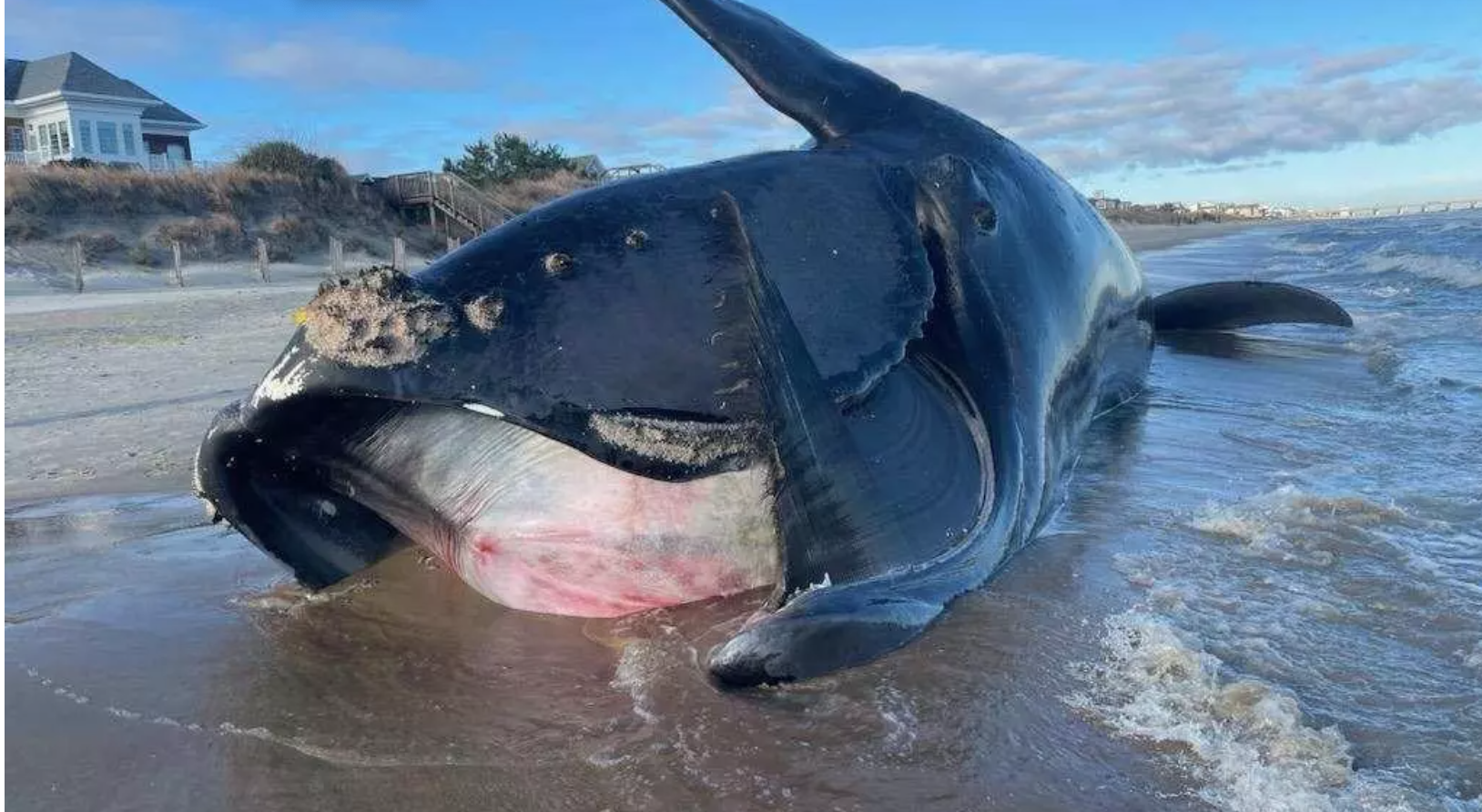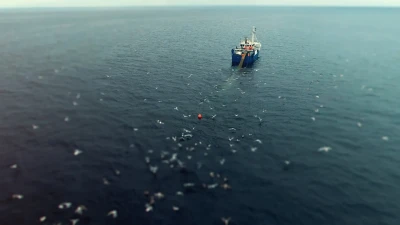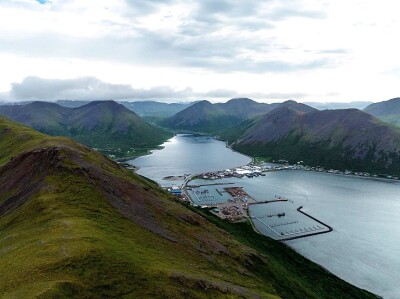An endangered North Atlantic right whale was struck and killed by a passing vessel before it washed up at Virginia Beach, Va. Feb. 12, according to the National Oceanic and Atmospheric Administration.
The 20-year-old male 43 feet long was found on Chic’s Beach, and subjected to a necropsy by a team led by experts with the Virginia Aquarium Stranding Response Program, and the University of North Carolina Wilmington.
The necropsy found “the whale suffered a catastrophic blunt force traumatic injury, impacting a large portion of the vertebral column. The injuries, consistent with a vessel strike, included multiple vertebral fractures and separations that would have resulted in death shortly after the injury,” according to a NOAA statement. “The whale was otherwise in normal to thin nutritional condition, with no evidence of recent entanglement and no obvious external evidence of trauma.”
It's not known when and where the whale was struck. Virginia Beach is close by approaches to the Port of Virginia, where like other East Coast ports there are seasonal management areas delineated by NOAA directing vessels over 65 feet in length to maintain their inbound and outbound speeds at 10 knots or less to reduce the danger of fatal whale encounters.
With a population now estimated at fewer than 350 animals, North Atlantic right whales are critically endangered. Marine mammal conservation groups took up the Virginia incident this week to argue for new rules and enforcement on vessel speed limits.
“This right whale’s violent death by vessel-caused blunt force trauma underscores that humans are responsible for all these preventable deaths,” said Jane Davenport, senior attorney at the group Defenders of Wildlife. “There’s still time to save this species by expanding proven commonsense measures like seasonal vessel speed limits, but the extinction clock speeds up every time we kill another whale, and we’re awfully close to midnight.”
NOAA has proposed extending vessel speed restrictions to boats under 65 feet in length, but the measure faces stiff opposition from coastal passenger vessel operators, the charter fishing industry and recreational boating groups.
In November whale advocacy groups filed an emergency rulemaking petition with NOAA to reduce vessel speeds to protect right whales in waters on their winter-spring calving grounds off the Southeast U.S. coast. The agency turned down that request Jan. 20, citing its plans to tighten vessel speed rules.
Now, “current regulations are not sufficient to protect the whales, and changes proposed by NOAA Fisheries last August are unlikely to go into effect before the end of this year’s calving season,” the groups said this week.
“This whale’s death is a tragic reminder of the constant danger North Atlantic right whales are facing,” said Kristen Monsell, oceans legal director at the oceans legal director at the Center for Biological Diversity. “Right whales desperately and immediately need more protections from vessel strikes and all the other human-caused threats facing the species, or they are likely to go extinct.”
“What makes this more infuriating is that it was entirely predictable and preventable,” said Gib Brogan, a campaign director with the environmental group Oceana which in December had filed its own petition for NOAA emergency action on boat speeds. “Our government is moving at a snail’s pace to put effective safeguards in place that lessen the risk of boat collisions with North Atlantic right whales, despite the crisis that is unfolding off our shores.”
The Virginia right whale death was one in a series of other Mid-Atlantic whale strandings since December, most involving humpback whales. A dead humpback whale that washed ashore Monday at Manasquan, N.J., likewise showed evidence of a vessel strike, according to NOAA.
Opponents of offshore wind energy projects in the region have called for all construction and survey work on those sites to be suspending, contending it may have disrupted the whales’ normal behavior and contributed to strandings.
NOAA officials counter there is no evidence for that claim, while they continue to track an “unusual mortality event” with more than 180 humpbacks stranded since 2016. Many of those showed signs of vessel impact or fishing gear entanglement, the agency says.







